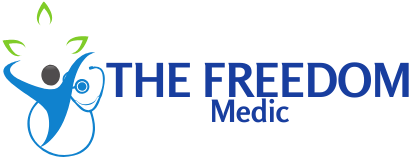Developing a strong sense of integrity and ethics is essential for both your personal and professional life. It not only shapes your character but also dictates how others perceive and trust you. Integrity and ethics are the cornerstone of a successful and fulfilling life. While it may seem challenging, there are several effective ways you can improve and maintain your moral compass. In this blog post, we will delve into some of the key strategies that can help you cultivate a steadfast commitment to integrity and ethical behavior.
Foundations of Ethical Behavior
For most people, developing a strong sense of integrity and ethics begins with understanding the foundations of ethical behavior. This includes moral philosophy and principles, as well as the role of upbringing and education in shaping your beliefs and values.
Moral Philosophy and Principles
When it comes to ethical behavior, moral philosophy and principles play a crucial role in shaping your beliefs and values. Understanding different ethical theories, such as utilitarianism, deontology, and virtue ethics, can help you analyze complex moral dilemmas and make more informed decisions. The principles that guide ethical behavior, such as honesty, fairness, and respect for others, serve as a compass for your actions and decisions. By aligning your behavior with these foundational principles, you can develop a strong sense of integrity and ethics.
The Role of Upbringing and Education
Your upbringing and education also play a significant role in shaping your ethical beliefs and values. From a young age, you are influenced by the moral values and behaviors of your family, peers, and community. The values and principles instilled in you during childhood can have a lasting impact on your ethical development. Furthermore, education and exposure to diverse perspectives and ethical discussions can broaden your understanding of ethics and help you develop a more nuanced and well-rounded ethical framework. By reflecting on your upbringing and seeking out opportunities for ethical education, you can further develop and strengthen your sense of integrity and ethics.
Developing Integrity in the Workplace
Any successful organization must prioritize integrity in the workplace. Building and maintaining a culture of ethics and integrity requires effort from everyone in the organization, not just leadership. To help you build your integrity in the workplace, consider these 5 Ways to Help Build Your Integrity: holding yourself to high standards, being honest and transparent, keeping promises and commitments, taking responsibility for your actions, and treating others with respect.
Creating an Ethical Work Environment
Creating an ethical work environment means establishing clear expectations for ethical behavior and promoting a workplace culture where honesty, fairness, and respect are valued and rewarded. You can contribute to this by ensuring that your own actions and decisions align with ethical principles. Encourage open communication and provide avenues for employees to raise ethical concerns without fear of retaliation. By fostering an environment where integrity is paramount, you can help set the tone for ethical conduct throughout the organization.
Leading by Example: The Power of Role Models
One of the most powerful ways to develop integrity in the workplace is by leading by example. As a leader or team member, your behavior sets the standard for others. Your commitment to acting with integrity, even when faced with difficult decisions, can inspire and influence your colleagues. By consistently demonstrating honesty, ethical decision-making, and accountability, you can become a role model for others to emulate. Your actions speak volumes, and they can positively shape the culture and integrity of the workplace.
Cultivating Personal Integrity
Despite the many external influences that can shape your values and beliefs, the development of a strong sense of integrity ultimately begins with you. It requires a conscious effort to align your thoughts, words, and actions with your ethical principles. To help you with this, consider following the 5 Steps To Developing A Strong Sense Of Morality for guidance and insight.
Self-Reflection and Honesty
One of the key components of cultivating personal integrity is self-reflection and honesty. Take the time to assess your values, beliefs, and actions. Ask yourself tough questions and honestly evaluate whether your behaviors align with your ethical principles. This level of self-awareness and honesty will help you identify areas for improvement and allow you to make necessary adjustments to your behavior.
Consistency in Words and Actions
To cultivate personal integrity, it is essential to prioritize consistency in your words and actions. Your integrity is built on the principle of honoring your commitments, being truthful in your communication, and acting in alignment with your values. When your words and actions are consistent, you demonstrate reliability and build trust with others. Consistency also reinforces the notion that you stand by your principles, even when faced with challenges or temptations.
Strategies for Strengthening Ethics
Now, let’s discuss some strategies that can help you strengthen your ethics and integrity in both your personal and professional life. It’s important to constantly work on developing and maintaining these qualities, and there are a variety of approaches you can take to do so. One useful resource to consult is a blog post called 10 Strategies to Promote Integrity in the Workplace. This article provides valuable tips that can be applied in various aspects of your life, not just in the workplace.
Ethical Decision-Making Models
When it comes to reinforcing your ethics, being able to make ethical decisions is crucial. There are various ethical decision-making models that can guide and help you in this process. These models offer a systematic approach to evaluating and resolving ethical dilemmas. By familiarizing yourself with these models, you can strengthen your ability to make sound ethical decisions in any situation.
Dealing with Ethical Dilemmas
Another key aspect of strengthening your ethics is knowing how to effectively deal with ethical dilemmas. It’s inevitable that you will encounter challenging situations where you have to make tough ethical choices. By understanding how to navigate these dilemmas and having a clear understanding of your values and principles, you can ensure that you make the right decisions, even in the face of difficult circumstances.

Developing a Strong Sense of Integrity and Ethics
Presently, the best ways to develop a strong sense of integrity and ethics involve consistently practicing honesty, accountability, and transparency in your daily actions. It is important to hold yourself to high moral standards and to always follow through with your commitments. Additionally, surrounding yourself with individuals who prioritize ethical behavior and lead by example can greatly influence your own values. By continuously evaluating your decisions and actions through an ethical lens, you can cultivate a strong sense of integrity that will guide your behavior in both personal and professional settings.


